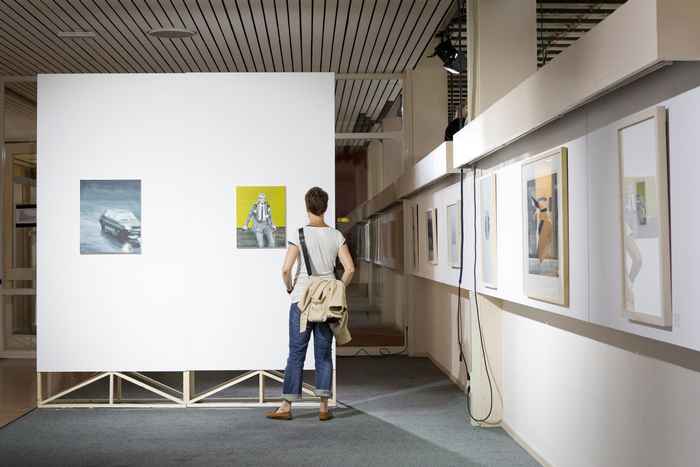RAAK-PRO grant for research on the role of art in palliative care
2 December 2022

The consortium will receive 700,000 euros from RAAK-PRO. This amount will be increased through additional funding from the consortium partners to a total of one million euros.
Learning from art
Living with a diagnosis of incurable cancer: for patients in palliative care, this is a harsh daily reality. How can you lead a meaningful life in a seemingly hopeless situation? According to Jeroen Lutters, leader of the consortium and professor at ArtEZ (professorship Art Education as Critical Tactics), art and art education serve an important role to achieve this. In order to conduct further research into this, the consortium has been awarded a SIA RAAK-PRO grant. With this grant, the consortium will research the effectiveness of the Art-Based Learning (ABL) method for influencing meaning-making processes for patients with incurable cancer. ABL is a teaching method in which the dialogue between the student and the artwork is central, and the viewer learns not so much about as from art.
The positive impact of art in the last phase of life is really underestimatedJeroen Lutters, professorship Art Education as Critical Tactics and lead applicant of the SIA RAAK-PRO
The indispensable role of art in anxious days
"The positive influence of art in the last phase of life is really underestimated," Lutters explains. "Art has an important, meaningful role. One who brings art and death together in a dialogue actually asks questions about the very meaning of life," he says. “Thanks to this RAAK-PRO grant for ART-PC and the contributions from the partners, the relationship between art, health care, and meaning-making will hopefully be further underlined and made available in palliative care.”
ArtEZ’ professorship Art education as Critical Tactics has previously conducted preliminary research on the effectiveness of ABL within the palliative-care context. This pilot was led by Silvia Russel (artist) and was carried out in close collaboration with Prof. Dr. Hanneke van Laarhoven (oncologist at Amsterdam UMC), Prof. Dr. Gerben Westerhof (psychologist, University of Twente), Dr. Fabiola Camuti (education, ArtEZ) and several universities, hospitals, and museums. The results of this pilot were so promising that a follow-up study was the obvious choice.
Thanks to this RAAK-PRO grant, the consortium will be able to build on this pilot and other existing research. Lutters: "At the end of this trajectory, in 2026, we hope to be able to demonstrate in concrete terms that there is a positive effect of art in the palliative phase. This in turn will pave the way for a more intensive relationship between museums and artists on the one hand, and doctors, therapists, and nurses on the other, in the interest of people in palliative care.”
Interaction between research and education
In the consortium, universities, museums, hospitals, and patient associations work closely together. "This interaction between healthcare providers and museums, research, and education, is what makes this such a special consortium. And, of course, we work closely with the patients themselves as well! " says Lutters. "What is important here is that people who come face to face with death have a need to be seen as an independent individual, and thus as someone who, like everyone else, is searching for the meaning of life. ABL hopes to support this creative and independent process.”
All partners and researchers
Prof. Jeroen Lutters and Dr. Fabiola Camuti (ArtEZ, Professorship Art Education as Critical Tactics), Prof. Dr. Hanneke van Laarhoven and Sabrina Kamstra (Amsterdam UMC), Prof. Dr. Gerben Westerhof and Dr. Anneke Sools (University of Twente), Dr. Manon Perry (Free University/University of Amsterdam), Dr. Michael Scherer-Rath (Radboud University), Amsterdam Museum, Museum Jan Cunen, Centraal Museum Arnhem, Leren van Kunst, and the patient associations Living with Hope, SPKS, and NFK.
